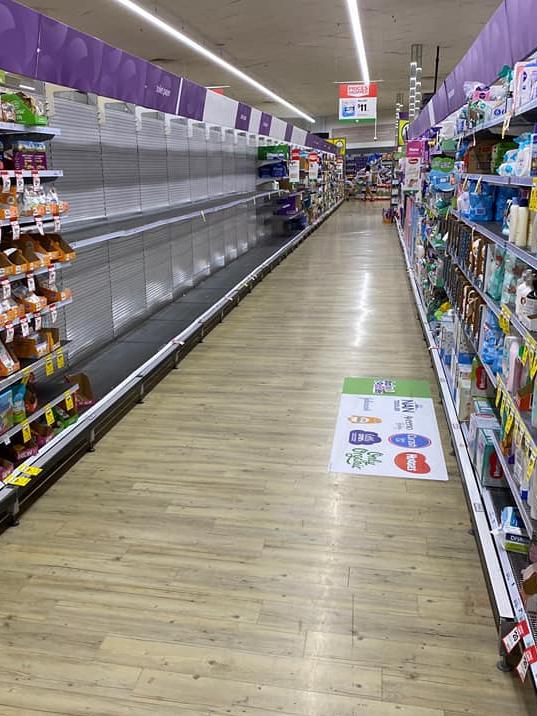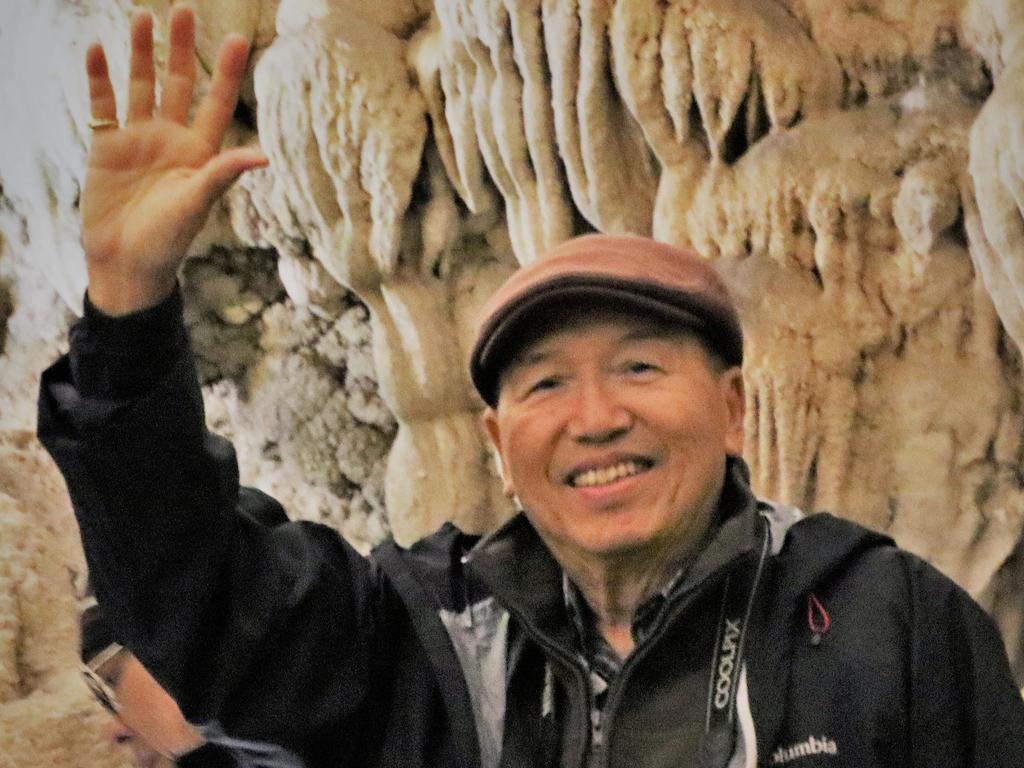We’re too selfish to stop coronavirus spreading
Decades ago governments could depend on a largely obedient public. But the ‘me’ generation can’t be relied upon to self-isolate.

Where is the needle flickering on your coronavirus-o-meter: horizontally relaxed? Mild concern? End-of-days panic?
Last week I was snorting at a Mumsnet user’s list of the essentials she was stockpiling in case of a long period in isolation: “olive oil, hummus, body lotion, Pringles . . .” By the weekend I was eyeing the tinned goods aisle.
The World Health Organisation says the window of opportunity to contain the virus is narrowing. Mecca is closed to foreign pilgrims, Venice has pulled the carnival, Iran cancelled Friday prayers.
I am reassured by friends’ predictions that this will be another here today, gone tomorrow Sars or swine flu; then I remember they know as much about pandemics as I do about quantum computing.
My central concern about our response to coronavirus is not that the health system will be overstretched, or that researchers will take too long finding a vaccine. It is that we, the general population, are not inclined to follow orders any more. To contain this virus governments around the world must rely on citizens doing as they are told: “Avoid large gatherings”, “Don’t travel unless essential”, “Self-isolate”.
My fear is that our safety net is the willingness of other people to respect authority whether it suits them or not; to place the common good over their own busy agenda. In the age of entitlement, the age of the individual, the age of anti-establishment populism, this seems a very flimsy safety net indeed.
Decades ago governments could depend on a largely obedient public. Wartime public information campaigns resounded with Old Testament authority: Dig for Victory! Make Do and Mend! The people listened: 1.4 million allotments sprang up during World War II; the elimination of waste became a moral crusade. Lord Beaverbrook’s promise to “turn your pots and pans into Spitfires and Hurricanes” led to a huge national scrap drive, cupboards ransacked for colanders and kettles to stick it to Hitler. The civilian effort was underpinned by trust in authority. The man in Whitehall really did know best and when he spoke people listened. “Elders and betters” was not a laughable anachronism but a genuine description.
Then came the decline of deference, the rise of satire, 1960s liberalism, 21st-century narcissism, the “me” generation who ask not what they can do for their country but what their country can do for them. What small reserves of respect our “betters” still held were smashed away by the one-two punch of the financial crisis and the MPs’ expenses scandal. Brexit was a great “screw you” to the so-called establishment, a signal that the days of dependably obedient citizens were gone. Now that trust and respect in politicians runs so low, now that decades of individualism have encouraged us to believe that we as unique individuals are what matters over the herd, are enough people going to follow inconvenient orders for the common good — especially when those orders come from ministers who many think are inept or corrupt anyway?


We have already seen the danger that disobedient citizens pose to public health. Across the land there are anti-vaxxers and their idiot acolytes who believe they know better than medical authorities because they have watched a few videos on YouTube. Still, though, their own little darlings are likely to be protected whether they had the vaccine or not, thanks to all the other children who have been jabbed. The I’m-all-right-Jack anti-vaxxers embody the selfish conclusion of individualism: a disinclination to suffer any sacrifice for the sake of the herd.
This is not to tarnish us all with the brush of selfishness, but it only takes a small number to spread the virus and already we are seeing how some find a certain level of inconvenience intolerable. In the Tenerife hotel where scores of Britons are stuck in their rooms waiting the quarantine out, several people have been photographed flouting the lockdown, stretched out beside the pool in facemask and bikini. “There may be a pandemic, Graham, but I’m not going home whiter than a milk bottle!”
Last month Alla Ilyina, a Russian citizen, escaped a coronavirus quarantine in St Petersburg and posted a video about her getaway on Instagram in which she declared: “I have a right to my freedom . . .” Ilyina could not understand why, having tested negative for the virus, she was being forced to stay in isolation for a further two weeks; the opinion of medical professionals that she was still a potential risk to others could not outweigh her desire for liberty.
The case has echoes of the US nurse Kaci Hickox, who worked in Sierra Leone during the ebola outbreak of 2014. Returning home via Newark airport she was found to have a fever, and so was held in quarantine for three days. Hickox complained of “inhumane” treatment (which included internet access and takeaway food) and sued the governor of New Jersey for violating her civil rights. The case was settled in her favour.
How long before someone who is quarantined here makes a civil rights moment out of it? I noticed that one of the men leaving the isolation facility in the Wirral raised his fist to the sky like Nelson Mandela leaving Robben Island. Cry freedom!
The proliferation of rights and conveniences has made many of us rather self-indulgent creatures. We think we are entitled to travel on planes whatever the dangers; we think we will self-isolate after we’ve run those vital errands; we think the advice to stay home if we’re feeling flu-like symptoms applies to everyone else; we think we should get a second opinion in A&E; we think we know best.
For these reasons the government must quickly open the box of measures which some will call draconian: close schools and other public services if necessary, ban large gatherings such as sporting events, be prepared to quarantine whole towns and cities — as they did in China. Yes, this will be pounced upon by Liberty and civil rights groups and football fans and parents and media commentators crying that “the Blitz didn’t stop us, did it?” But the government must show some mettle. However puny the death rate sounds, we must remember that this statistic means people ripped from the heart of their families before time; black grief that might have been avoided.
“Keep Calm and Carry On” might have worked in the days of a more obedient public, but in this individualistic age the government must be prepared to take forceful measures to slow the spread of coronavirus. It is better for us all to be safe — though inconvenienced — than sorry.
The Times







To join the conversation, please log in. Don't have an account? Register
Join the conversation, you are commenting as Logout